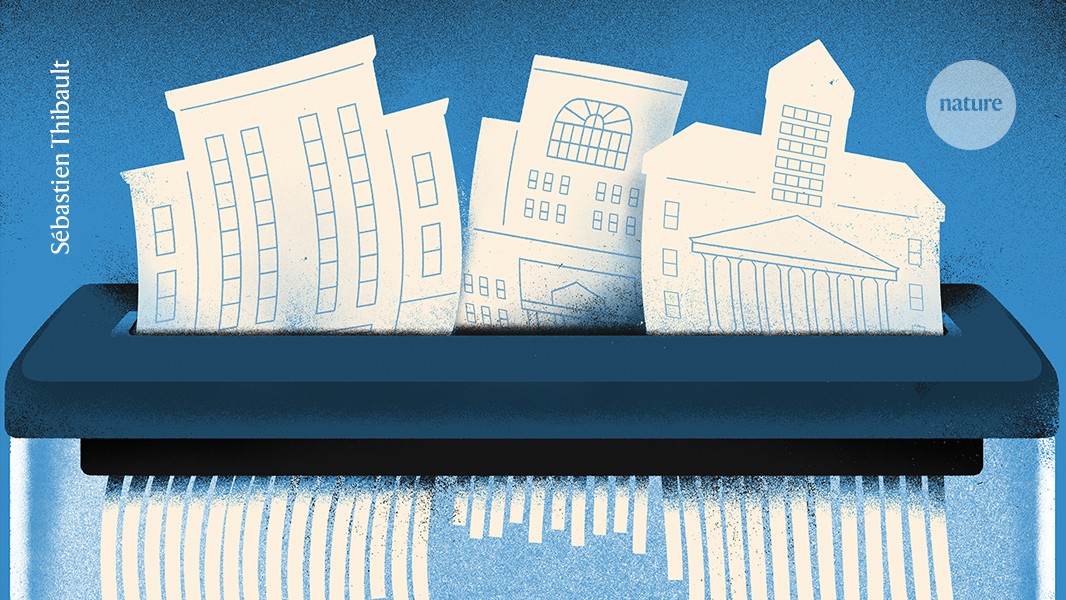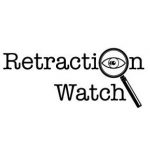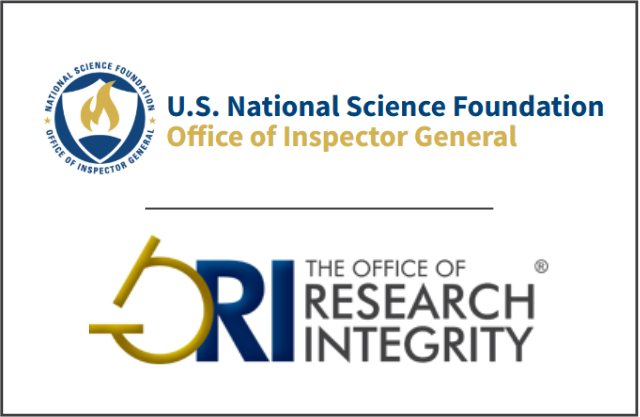shemp
a flimsy character...perfidious and despised
Oy vey.
The biopharma company Cassava Sciences announced today its experimental Alzheimer’s disease drug simufilam showed no signs of working in a phase 3 clinical trial. Volunteers who took the drug performed no better in cognitive or everyday-life activities than those who received a placebo. The announcement appears to mark the end of the company’s development of simufilam for Alzheimer’s, which has been marked by scandal and controversy.
“This is an expected result,” says Matthew Schrag, a Vanderbilt University neuroscientist who discovered many of the apparently doctored images cited in the complaint to FDA. “It remains alarming to me that the trial was permitted to continue to completion in view of the serious ethical concerns around the underlying science.” Schrag, who has conducted his assessments of Cassava’s work separately from his university duties, provided much of the basis for the citizen’s petition to FDA and has tracked the company since.
Elisabeth Bik, a leading forensic image sleuth, also identified many of the problems in Cassava’s studies—and was relentlessly attacked by boosters of the company on social media. The self-described “SAVAges,” a play on the company stock-ticker symbol, had for years lambasted Bik and other Cassava critics, including journalists who wrote about the company, in often-caustic and at-times threatening terms.
The company has only one drug in development, making its future uncertain at best. Its stock plummeted by more than 80% on the news—dropping about $1 billion in value.
“This is by no means the news we were hoping for,” Rick Barry, the company’s CEO, said in a conference call.
This part:Apparently this Alzheimer's treatment was known to be without any merit long before the trials in which it apparently failed miserably. This is an article by Charles Piller who apparently has a book out about all kinds of other false promises when it comes to Alzheimers. Seems that fraud and hype are rife in this area.
So who are these "SAVAges"? Perhaps they'd like a little taste of their own medicine (pun intendedElisabeth Bik, a leading forensic image sleuth, also identified many of the problems in Cassava’s studies—and was relentlessly attacked by boosters of the company on social media. The self-described “SAVAges,” a play on the company stock-ticker symbol, had for years lambasted Bik and other Cassava critics, including journalists who wrote about the company, in often-caustic and at-times threatening terms.
This part:
So who are these "SAVAges"? Perhaps they'd like a little taste of their own medicine (pun intended)?
Bik is a hero.
Yeah, she is.This part:
So who are these "SAVAges"? Perhaps they'd like a little taste of their own medicine (pun intended)?
Bik is a hero.
He'll be more likely to make it easier for the fraudsters to thrive. He has a serious grá for fraudulent "medicine".Maybe this is something positive that RFK Jr's efforts can be actually employed to eradicate. If he concentrates solely on cleaning up this field properly, I'll give him props. Rather than dicking about killing US children by stupidly slowing or even withholding proven vaccines.


 retractionwatch.com
retractionwatch.com
That list only surprised me in that the Chinese have beaten KPR into fourth place.New article in Nature:

Exclusive: These universities have the most retracted scientific articles
A first-of-its-kind analysis by Nature reveals which institutions are retraction hotspots.www.nature.com
Hopefully greater awareness of the problem will eventually lead to policies that discourage fakery and tools that can spot it when it does occur.

From the Academy's by-laws:
Misinformation Doctors Start a Misinformation Journal to Spread Misinformation
There is no doubt the "studies" in this journal will conclude We Want Them Infected doctors were right about everything the whole time; mitigation measure were an epic catastrophe while COVID was a hasciencebasedmedicine.org
I'm not sure if that was sarcastic or not, but I am serious.That's a dangerous thing to post in the current climate: people might think you're serious.
It seems like he wants to have it both ways.So let’s be clear what happened here. In the mRNA trials, 39 of the 40 severe cases occurred in the placebo group. While these were obviously amazing results, the vaccine and the virus were still brand new. Dr. Bhattacharya overhyped the vaccines, claiming they blocked transmission, obviated severe disease, and had “defanged” the pandemic. He mocked anyone who wisely took a more conservative approach.
Today, Dr. Bhattacharya, denies that the mRNA vaccines limit severe disease and wants them removed from the market. He excoriates others for his words, blaming them for vaccine-hesitancy and a loss of trust.
But, but, WAAAAA! DEI!That's all well and good. However, I will pay more attention to "the quality and extent of their already published publichealth work"
It seems like he wants to have it both ways.
Obviously "discrimination based on" the laundry list of irrelevancies cited there is dumb, but who even does that?

Yeah, I had the same thought. I think AI might notice unusual patterns that would likely escape the attention of a human being. Like, maybe hallmarks of data that is faked compared to real data. (Among other things that might be red flags or yellow flags)Wonder if this is a good area for current AI approaches to deal with? Spotting patterns and similarities in large data is something they are very good at.
Wonder if this is a good area for current AI approaches to deal with? Spotting patterns and similarities in large data is something they are very good at.
This thread is about fake science, not fake egalitarianism. But hey, never let an opportunity go by, eh?From the Academy's by-laws:
The only criteria for membership shall be the quality and extent of their already published publichealth work. There shall be no discrimination based on gender, age, marital status, sexual orientation,religion, disability, ethnicity, skin color, nationality, place of residence or academic affiliation.
In other words, in contrast to other scientific honor societies (eg, NAS, AAAS), that now give preference to women and minorities in their selection for membership, this new academy will select members strictly on their scientific merits.
Bravo.
It would be trained on a dataset that consisted of good papers and faked/withdrawn papers and it would be "told" which were which.I would assume that AI is singularity bad at this.
For one, it would be easy to flood the training data with with bad examples (it as is the case now).
Secondly, science today is so pigeonholed that one would have to chose the training set extremely narrowly.
Third, fake science is mostly used to get grants and promotions, not to prove the existence of of the supernatural: the claims are usually not outrageous unless you know the subject very well.
And lastly, different countries, laboratories, topics of research and methodologies have vastly different approaches to the number of co-authors on a publication: just because one paper might have 2 and another 20 doesn't meant that one is more likely to be made up than the other.
Much better would be to pay scientists for successful debunks.

 retractionwatch.com
retractionwatch.com
One of those things where the effect is likely to be opposite to the stated goal. These are people whose actual jobs are to identify "fraudulent and wasteful spending" so that they can "put an end" to it.
Exclusive: U.S. federal research integrity teams take hits with departures
Amid efforts by the Trump administration to “put an end to fraudulent and wasteful spending” and “enhance” accountability, two key offices charged with investigating fraud and holding scientists an…retractionwatch.com
Already has by some of the debunking groups. I think possibly Data Collada as well. And you are right! ai is great at the mind numbing, watching paint dry, task of data categorization and analysisWonder if this is a good area for current AI approaches to deal with? Spotting patterns and similarities in large data is something they are very good at.
You can hear some of those people here:One of those things where the effect is likely to be opposite to the stated goal. These are people whose actual jobs are to identify "fraudulent and wasteful spending" so that they can "put an end" to it.
DOGE appears to enable corruption and tax fraud rather than prevent it.They Were the Original DOGE. Then Trump Fired Them. (New York Times on YouTube, Mar 8, 2025 - 10:30 min.)
President Trump has sworn to root out corruption within the government, yet one of his first acts as president was to fire over a dozen independent watchdogs who did exactly that. We spoke to seven of them about the abuses they uncovered, what they really think about DOGE and what all this means for the future of American democracy.
0:00 — Intro
2:35 — What’s an inspector general?
3:20 — You got fired. Why should we care?
4:59 — What worries you about the future?
6:31 — What’s do you think about DOGE?
8:41 — Is our democracy in danger?
That is the aim of a dictatorship. Then the rich take over. That is what happens when the middle class loses their influence.You can hear some of those people here:
DOGE appears to enable corruption and tax fraud rather than prevent it.

The five studies were published between 2002 and 2009. To pick just one, in 2007 Guéguen was the sole author of a study entitled “Bust Size and Hitchhiking: A field study“.

